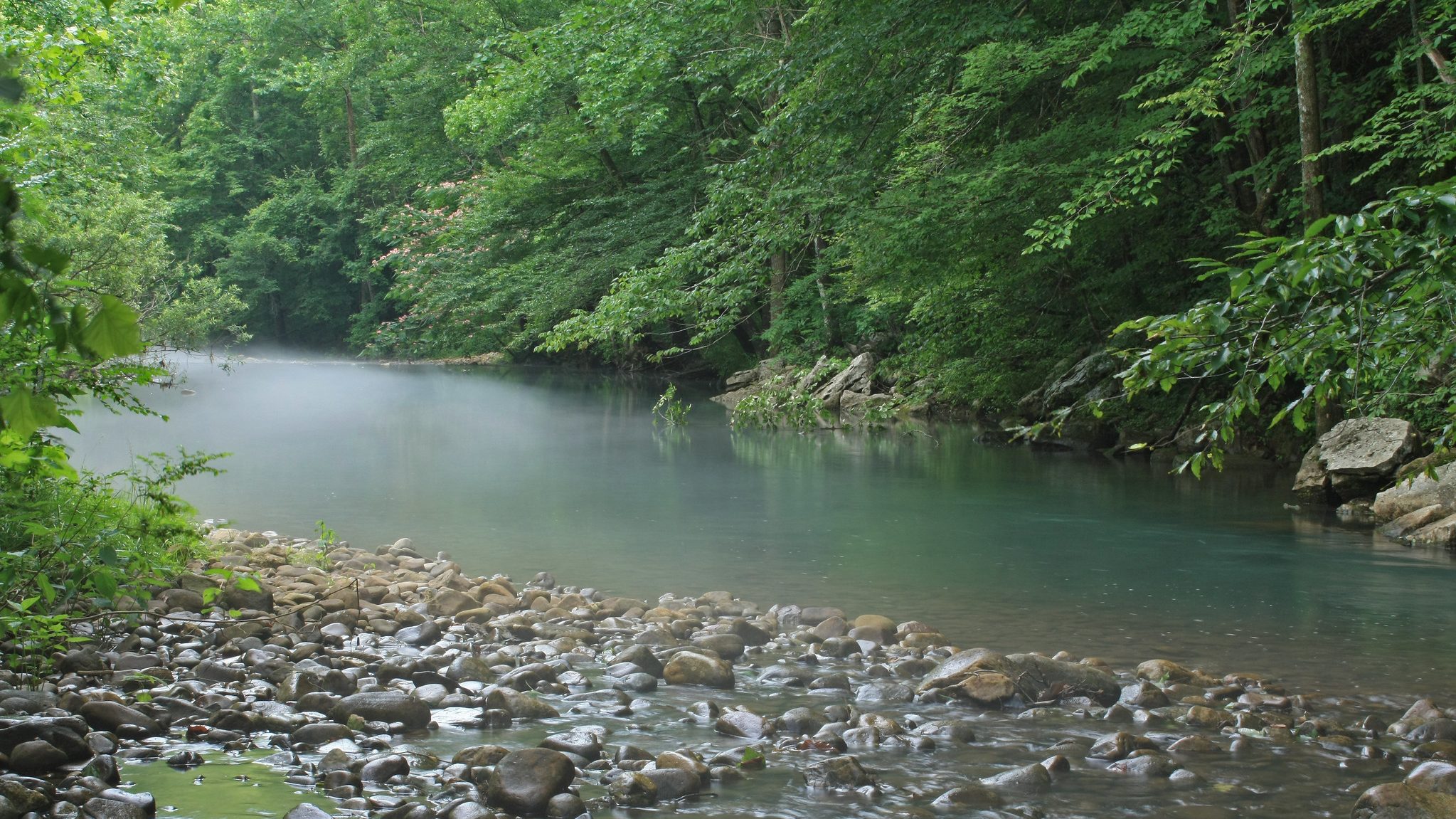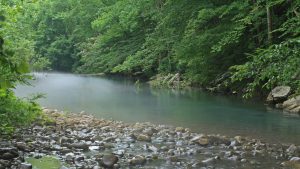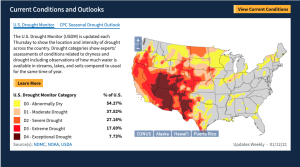January 2021 Newsletter

January 2021 Newsletter
Welcome to the Southeast Climate Adaptation Science Center’s January 2021 Newsletter.
For news and upcoming events related to the Southeast Climate Adaptation Science Center,
subscribe to our monthly newsletter.
SE CASC News | Resources | Publications | Tribal News | Partner News | Webinars | Events | Opportunities

Southeast Climate Adaptation Science Center News
 Please join us on February 16 at 11am ET for the first presentation in our Spring Science Series. SE CASC Researcher, Dr. Brian Crawford, Georgia Cooperative Fish & Wildlife Research Unit, will present: Structured Decision Making: A Strategy for Collaboration and Conservation of Imperiled Herpetofauna. Register here.
Please join us on February 16 at 11am ET for the first presentation in our Spring Science Series. SE CASC Researcher, Dr. Brian Crawford, Georgia Cooperative Fish & Wildlife Research Unit, will present: Structured Decision Making: A Strategy for Collaboration and Conservation of Imperiled Herpetofauna. Register here.
New data on conservation and restoration priorities for water purification have been developed as part of SE CASC project, Ecosystem Services Mapping Datasets. New Methods Brief and updated Story Map are also available.
An announcement of SE CASC Funding Opportunity for FY2022 will be released soon, posted on our SE CASC Science Planning and Implementation page.
National CASC is co-sponsoring a four-part Ecological Drought National Webinar Series with NIDIS in Feb-March, featuring several SE CASC researchers. Learn more and register.
Researcher Spotlight: Global Change Fellow, Tira Beckham.
2011-12 Global Change Fellow, Corey Davis was lead author and USGS Deputy Director, Ryan Boyles, Consortium PI, Karen McNeal, and Former Global Change Fellows, Lindsay Maudlin and Rachel Atkins, co-authors on a new publication, Visually Communicating Future Climate in a Web Environment. Read a summary of the work.
SE CASC Researcher, Simeon Yurek led an author team including SE CASC Research Ecologist, Mitch Eaton to publish Modeling structural mechanics of oyster reef self-organization including environmental constraints and community interactions, supported by SE CASC project, Climate Change Adaptation for Coastal National Wildlife Refuges.
2014-2015 Global Change Fellow, Marketa Zimova is lead author and 2015-2016 Global Change Fellow, Sean Giery co-authored, Lack of phenological shift leads to increased camouflage mismatch in mountain hares. Learn more about this research.
2018-2019 Global Change Fellow, Deja Perkins was featured by ScienceNews: Meet 5 Black researchers fighting for diversity and equity in science.
Affiliate publications
SE CASC Researcher, James Cronin: Strategic Habitat Conservation for Beach Mice: Estimating Management Scenario Efficiencies.
SE CASC Researcher, Kristen Hart: Drivers of realized satellite tracking duration in marine turtles: movement ecology.
Faculty Affiliate, Astrid Schnetzer: Acidification in the U.S. Southeast: Causes, Potential Consequences and the Role of the Southeast Ocean and Coastal Acidification Network.
Faculty Affiliate, Skyler Hopkins: Continued preference for suboptimal habitat reduces bat survival with white-nose syndrome. Learn more about this research.
Resources
FEATURED RESOURCE
U.S. Drought Monitor

The National Integrated Drought Information System U.S. Drought Monitor has been redesigned to include up-to-date drought conditions and forecasts at the county level, easily shareable graphics, and drought impacts organized by economic sector. Drought impacts and outlooks can be explored by region with some summaries now being provided in both English and Spanish. Learn more.
Annual United States Climate Stripes: Temperature and Precipitation. The NC Institute for Climate Studies created a GIS storymap to depict the long term change in temperature and precipitation at the county level for the United States. These “climate grids” were inspired by Ed Hawkins’ warming stripes. Learn more.
Come Rain or Shine Podcast. The Southwest CASC has partnered with the USDA Southwest Climate Hub to share stories about the most recent advances in climate science and highlight creative and innovative practices to support resilient landscapes and communities. Learn more.
Decision-Support Tool for Shellfish Aquaculture Siting in a Coastal Reserve. This framework was developed by a team at the National Estuarine Research Reserve to help scientists and stakeholders in North Carolina make informed decisions about appropriate criteria for aquaculture siting. Learn more.
Report on the NOAA Office of Education Environmental Literacy Program Community Resilience Education Theory of Change. This report describes NOAA’s Environmental Literacy Program’s approach to and outcomes from implementing the theory of change philosophy in their community resilience education efforts. Learn more.
The State of High Tide Flooding and Annual Outlook. Each year, NOAA releases a summary of changes in high-tide flooding patterns from the previous year and provides a flooding outlook for the coming year, as well as projections for the next several decades. Learn more.
In the Media
2020 rivals hottest year on record, pushing Earth closer to a critical climate threshold. Washington Post
Covid-19 Took a Bite From U.S. Greenhouse Gas Emissions in 2020. NY Times
Guest column: Louisiana can lead the nation in fighting sea level rise. The Advocate
How to include Indigenous researchers and their knowledge. Nature
Preserving not just the most beautiful landscapes, but the most resilient. Boston Globe
The South’s Communication Infrastructure Can’t Withstand Climate Change. Southerly
Notable Publications
Global multi-model projections of local urban climates. Journal Abstract: Effective urban planning for climate-driven risks relies on robust climate projections specific to built landscapes. Such projections are absent because of a near-universal lack of urban representation in global-scale Earth system models. Here, we combine climate modelling and data-driven approaches to provide global multi-model projections of urban climates over the twenty-first century. The results demonstrate the inter-model robustness of specific levels of urban warming over certain regions under climate change. Under a high-emissions scenario, cities in the United States, Middle East, northern Central Asia, northeastern China and inland South America and Africa are estimated to experience substantial warming of more than 4 K—larger than regional warming—by the end of the century, with high inter-model confidence. Our findings highlight the critical need for multi-model global projections of local urban climates for climate-sensitive development and support green infrastructure intervention as an effective means of reducing urban heat stress on large scales. Link to article
High uncertainty over the future of tidal marsh birds under current sea-level rise projections. The effects of sea-level rise are expected to have dramatic impacts on tidal marshes and conservation planning efforts are important to the longevity of these ecosystems. However, uncertainty associated with climate change scenarios, model specifications, and temporal scale create hurdles to making these decisions. Researchers compared possible effects of SLR for 2030 and 2050 scenarios under both static inundation and dynamic response model predictions for northeastern USA marshes. By utilizing the current population estimates of five tidal marsh bird species of conservation concern they were able to predict patterns of population change for each SLR model and examined how uncertainty affects planning decisions for these species. Link to article.
Inter-hemispheric synchroneity of Holocene precipitation anomalies controlled by Earth’s latitudinal insolation gradients. Earth’s climate system is largely determined by the differences in temperature between the tropics and the poles. The process of atmospheric circulation transports heat energy toward the poles to offset this latitudinal imbalance of sun exposure, or insolation. Changes in the latitudinal distribution of insolation cause alterations in atmospheric circulation and can shift regional hydroclimates. Researchers explain that regional hydroclimates controlled by the Northern Hemisphere mid-latitude storm tracks and the African and South American Monsoons changed synchronously during the last 10,000 years and argue that global warming is likely to cause global atmospheric circulation to continue to change and eventually revert to a situation similar to that of 5,000 to 10,000 years ago. Link to article.
Ocean planning for species on the move provides substantial benefits and requires few trade-offs. Coastal and marine spatial planning often uses ecosystem-based management to coordinate among activities such fishing, energy development, and conservation. A key uncertainty in developing or revising ocean plans is whether planning ahead for future species redistributions resulting from climate change imposes high opportunity costs or sharp trade-offs in near vs long-term effectiveness. Authors used nine regions on the continental shelves of North America to study these issues, simulating the multisector ocean planning process to site zones for conservation, fishery, and offshore energy goals within each region and then evaluating these goals against future shifts in species habitat distributions. Results showed that planning for future species redistributions can substantially reduce exposure to risks from climate change with little additional area set aside and with few trade-offs against current ocean plan effectiveness. Utilizing networks of marine spatial management areas decreased projected species loss.Link to article>.
R–R–T (resistance–resilience–transformation) typology reveals differential conservation approaches across ecosystems and time. Escalating effects of changing climate on ecosystems have driven a shift in biodiversity conservation practices to more readily consider options for transformative actions rather than focusing largely on actions that maintain historical or current conditions. In order to evaluate climate adaptation practices, authors developed a new classification system, the resistance–resilience–transformation (R–R–T) scale, a six-point continuous interval scale spanning from objectives to actively resist changes through accelerating transformation towards new, more climate-adapted conditions. They used the scale to evaluate 104 adaptation projects funded by the Wildlife Conservation Society since 2011, finding that earlier projects were more likely to include approaches designed to resist changes, whereas more recent projects tended towards managing for transformative change, with the trend most evident in forest and coastal/aquatic ecosystems. Acknowledging the somewhat limited representation of projects, they interpret this as evidence of a paradigm shift, as practitioners and funders begin to move in the direction of more transformative conservation actions. Link to article.

Tribal News
Visit USET Climate Change Headlines for updates on information regarding climate science events, funding opportunities, best practices, and highlights from across the USET region.
The USET Climate Adaptation Writing Retreat will be held virtually from January 25-27, 2021. This retreat will provide writing opportunities for Tribal Nations continuing to make progress on their adaptation plans, opportunities for feedback, peer editing and reflection, addressing gaps in supporting data and information, and identifying resources to help with implementation. More information.
Southern Regional Extension Forestry hosted a six-part series providing insights on the history of native lands and their management ranging from treaties to wildlife, fisheries, forestry, fire management and more. Recordings of these presentations are now available:
– Introduction to Tribal Lands & Their Management
– Caring for All Relations: Tribal Wildlife Management
– Tribal Lands: Treaties, Federal Trust Obligation, & Opportunities for Cross-Boundary Collaboration
The Biden-Harris Plan for Tribal Nations includes a detailed plan of action to uphold the United States’ trust for Tribal nations. Learn more.
The ATNI-Lead Tribal Review of the Congressional Action Plan on the Climate Crisis provides Tribal Nations and other interested parties with an overview of the Congressional Action Plan developed by the House Select Committee on the Climate Crisis. SE CASC Assistant University Director, Aranzazu Lascurain was on the working group for this Tribal review and SE CASC Tribal Liaison, Casey Thornbrough was a reviewer for the report. Learn more.

Regional Partner News
Southeast Conservation Adaptation Strategy: Preliminary recommendations from the SECAS Futures Project
NOAA National Integrated Drought Information System: Drought Update for Puerto Rico and the U.S. Virgin Islands
Southeast Regional Partnership for Planning and Sustainability: January Driptorch Digest
Association of Fish & Wildlife Agencies: 2020 Climate Adaptation Survey report
NC Sea Grant: Plan, Respond, Recover, Adapt Building Resilience in Coastal NC
US Forest Service: Drivers of Change in U.S. Forests and Forestry Over the Next 20 Years

Webinars
Find more upcoming events in our calendar.
Jan. 22 | 12pm – 1pm | Potential for Remote Monitoring of Ocean Heat Content
Jan. 27 | 4pm – 5pm | NAFWS Presents Recovering America’s Wildlife Act in the 117th Congress Webinar
Jan. 28 | 1pm – 2pm | State/Tribal Fisheries Co-Management in Shared Fishery Lakes
Jan. 28 | 1:15pm – 2:45pm | How Parks Can Make Communities More Sustainable and Resilient
Feb. 3 |11:30am – 12:30pm | Ecological Drought: An Introduction
Feb. 4 | 9am – 10am | Climate and Conservation Coffee
Feb. 4 | 3:30pm – 4:30pm | Geospatial Forum: Doctoral Student forum
Feb. 9 | 10am – 11am | Southeast Climate Monthly Webinar
Feb. 16 | 11am – 12pm | SE CASC Science Seminar: Structured Decision Making: A Strategy for Collaboration and Conservation of Imperiled Herpetofauna

Upcoming Events
Jan. 25 – 27 | USET Climate Change Vulnerability Assessment/Adaptation Plan Writing Retreat | Virtual
Apr. 14 | The Gulf of Mexico Conference 2021 | Virtual
At NC State
Feb. 7 | NC State College Of Sciences Diversity In STEM event | Virtual

Opportunities
Student Announcements
USGS is accepting applications for the 2021 Science to Action Fellowship. Apply here by Jan. 31.
NOAA’s William M. Lapenta Student Internship Program offers paid summer internships for current undergraduate and enrolled graduate students to focus on strategic weather-water-climate issues. Applications are due here by Feb. 1.
NOAA is seeking applications for the Woods Hole Partnership Education Program. This 10-week summer internship program is from May 29 – Aug. 7, 2021. Apply here by Feb. 13.
Oklahoma State University’s Department of Biosystems and Agricultural Engineering has an open Graduate Research Assistantship in Water Resources. More information.
Hiring Announcements
Northeast CASC is accepting applications for a Deputy Director detail, open to federal employees, and employees of organizations eligible under the Intergovernmental Personnel Act agreement (state and local governments, colleges and universities, Indian tribal governments, federally funded research and development centers, and some non-profit organizations). More information.
A National CASC supported project to analyze creel program data is hiring a postdoctoral research position at Louisiana State University. More info and apply.
University of Missouri has an opening for a Ph.D. assistantship in the School of Natural Resources. Apply here by Feb. 1.
University of GA Warnell School of Forestry and Natural Resources is hiring an Assistant Professor of wildlife ecology, with emphasis on movement ecology and ornithology. Apply here by Feb. 15.
Michigan State University is hiring four field technicians for research in North Carolina on the St. Francis’ satyr butterfly. Apply by May 31.
North Carolina Institute for Climate Studies is hiring a Senior Research Scientist, a Postdoctoral Research Scholar, and a Research Associate.
Research Grants
The National Fish and Wildlife Foundation and the Wildlife Habitat Council are accepting applications for the Five Star and Urban Waters Restoration grant program which seeks to develop community capacity to sustain local natural resources for future generations. Apply here by Jan. 28.
Miscellaneous
SE CASC Researcher, Renee Collini is seeking individuals who have, and those who have not, used the tool Gulf TREE to participate in an interview to inform future improvements. Contact: r.collini@msstate.edu.
South Central CASC is offering a free course on the Societal Impacts of Climate Change. Register here.
American Geophysical Union’s Voices for Science program is accepting applications for both the communications and policy track programs. Apply here by Feb. 1.
- Categories:

